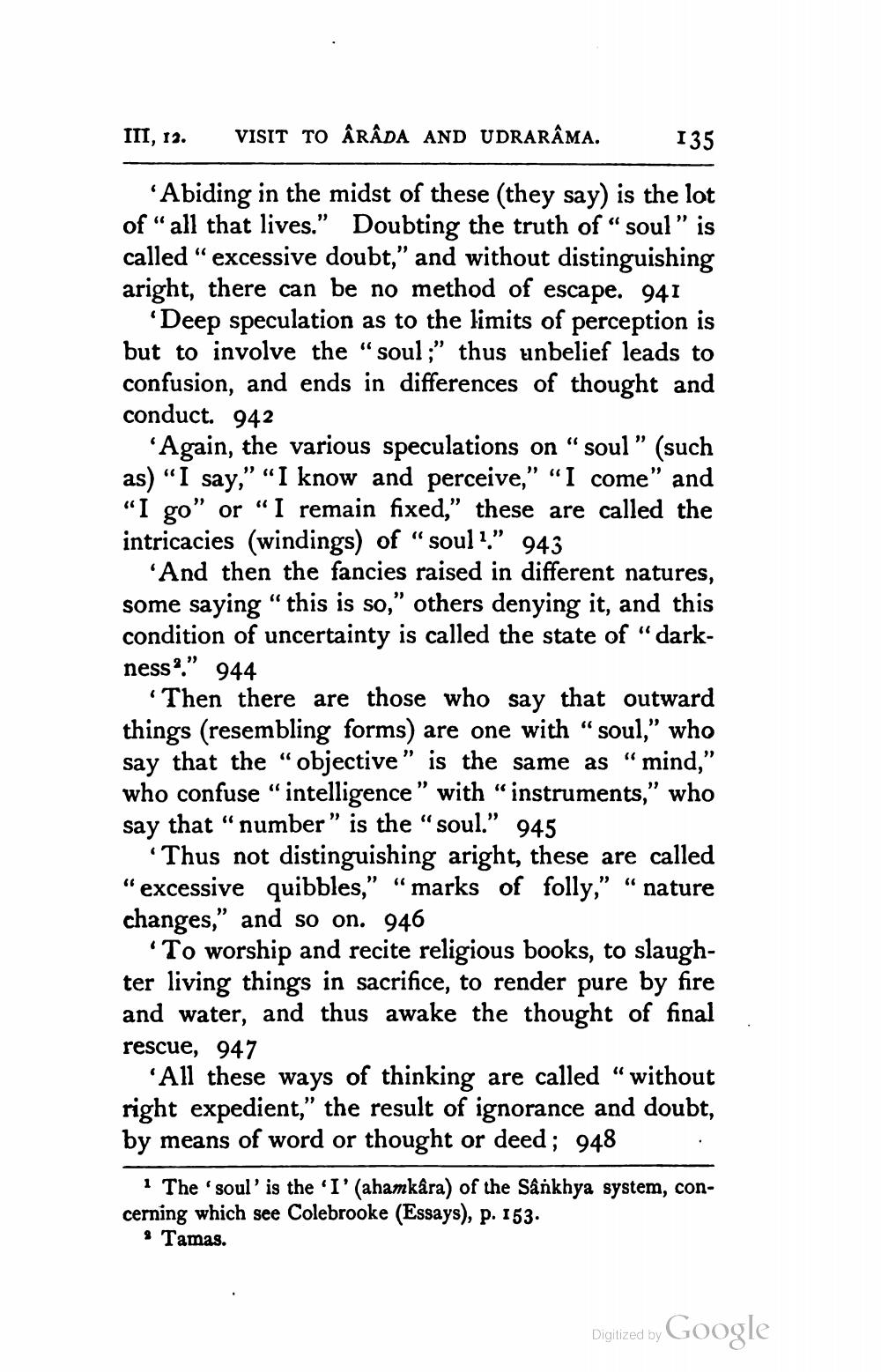________________
III, 19.
VISIT TO ÂRÂDA AND UDRARÂMA.
135
‘Abiding in the midst of these (they say) is the lot of “ all that lives." Doubting the truth of “soul" is called "excessive doubt,” and without distinguishing aright, there can be no method of escape. 941
'Deep speculation as to the limits of perception is but to involve the “soul;" thus unbelief leads to confusion, and ends in differences of thought and conduct. 942
Again, the various speculations on “soul” (such as) “I say," "I know and perceive," "I come" and "I go” or “I remain fixed,” these are called the intricacies (windings) of "soul 1.” 943
And then the fancies raised in different natures, some saying "this is so," others denying it, and this condition of uncertainty is called the state of “darkness?.” 944
Then there are those who say that outward things (resembling forms) are one with "soul,” who say that the “objective” is the same as "mind," who confuse "intelligence" with "instruments," who say that "number" is the "soul.” 945
Thus not distinguishing aright, these are called “excessive quibbles," "marks of folly," " nature changes," and so on. 946
To worship and recite religious books, to slaughter living things in sacrifice, to render pure by fire and water, and thus awake the thought of final rescue, 947
All these ways of thinking are called "without right expedient," the result of ignorance and doubt, by means of word or thought or deed; 948
1 The 'soul' is the 'I' (ahamkâra) of the Sankhya system, concerning which see Colebrooke (Essays), p. 153.
Tamas.
Digitized by Google




